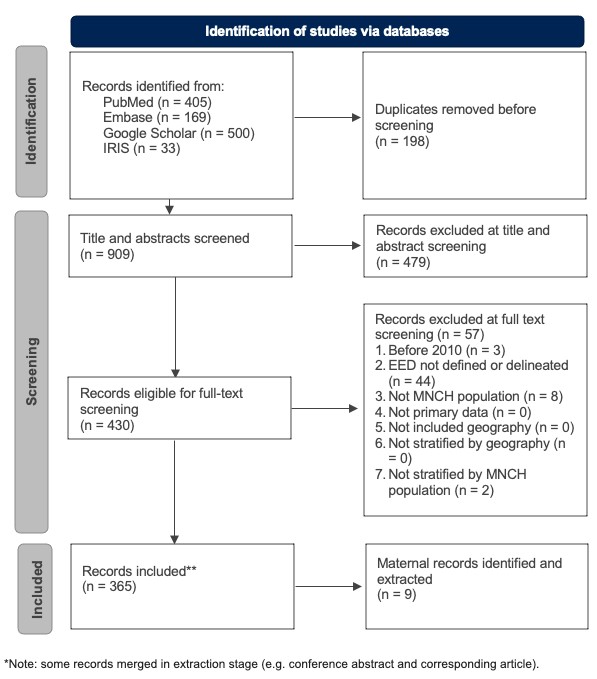
Environmental enteric dysfunction (EED) is a syndrome characterized by intestinal and systematic inflammation, mucosal histological features, and weight and/or growth abnormalities in the absence of other gastrointestinal conditions. The Bill & Melinda Gates Foundation (MBGF) engaged the Strategic Analysis, Research, and Training (START) Center to conduct a literature review to identify current definitions of EED, to delineate the distribution of EED biomarkers, and to extract associations between EED biomarkers and health outcomes among women of reproductive age, pregnant women, lactating women, and children within Sub-Saharan Africa and Southeast Asia. The START team conducted a systematic review following the Preferred Reporting Items for Systematic Reviews and Meta-Analyses (PRISMA) guidelines and WHO Rapid Review guidelines to identify relevant literature. In the extraction stage, due to the high number of included reports and based on feedback from the client, they captured information pertaining to EED biomarkers, their distributions, and their association to health outcomes for women of reproductive age, pregnant women, and lactating women.
A summary of key EED definitions was provided through a focused review of relevant reports. Through the systematic review, the START team identified substantial gaps in the existing published and gray literature concerning both delineation of known EED biomarkers and associations between EED biomarkers and health outcomes among women of reproductive age, pregnant women, and lactating women. The START team summarized these findings in a final report, an extraction database, and a final presentation for the client.






